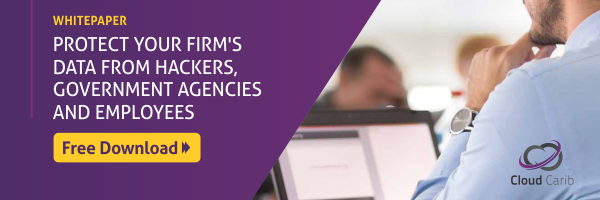
During her 2016 run for the US Presidency, Hillary Clinton's campaign suffered a major breach in which the contents of her private email server - over 100 emails containing classified information, including 65 emails deemed "Secret" and 22 deemed "Top Secret". An additional 2,093 emails not marked classified were retroactively designated confidential by the State Department - were made public. While Clinton faced heavy criticisms and her actions dubbed extremely reckless, she ultimately did not face any formal charges. The leak, which, at the time, was blamed on Russian hackers is a prime example of what happens when data isn’t properly protected and could have easily been avoided.
Truthfully, any individual or organization that stores valuable data is at risk of hacking. This could include law firms, educational institutions, health care providers, and especially those in the finance industry. Protecting a company’s most sensitive asset is both morally and legally the responsibility of your financial firm. Here are a few options a finance executive can take to protect his or her company’s data.
Train Your End Users
End users are the culprits of most data breaches and phishing scams. According to an IBM report, as many as 95% of breaches are caused by human error. Although most companies permit employees to participate in light web surfing throughout the day, this opens up opportunities for attacks. Oftentimes, online training and group training sessions can provide desktop-level security practices that solve a lot of problems without the company having to spend a lot of money. Training end-users on security also lowers the number of help desk requests.
Train Your IT Staff
If anyone needs training, it’s those who are on the front lines of your security. Making sure your IT team stays current on key certifications like CompTIA Security+, CISSP, CISM, and CEH will put them in a position to get ahead of potential threats. While training will require IT members to spend time away from some essential duties, your organization may find it far less costly to train staff than having to purchase new equipment.
Choose A Service Provider That Fits Your Needs
Cloud Carib provides private, public, and hybrid cloud services to keep data protected and recoverable. Headquartered in the Bahamas, the company operates in compliance with The Bahamas Data Protection Act, which sets a strict framework for privacy and protection and unlike U.S.-based providers, protects data from government intrusion.
By providing a private international presence, Cloud Carib delivers trusted cloud to the region ensuring that your hosted applications, such as Exchange, SharePoint and Skype for Business safer. Explore cloudcarib.com for more information. 